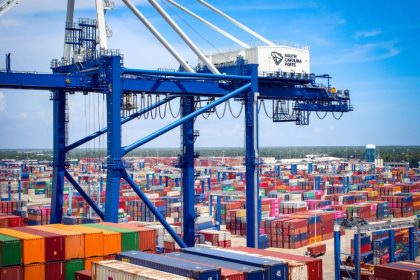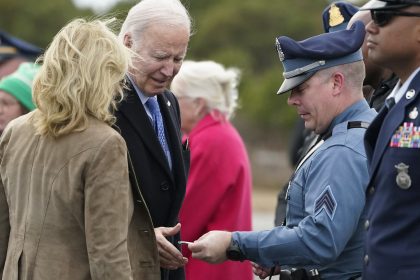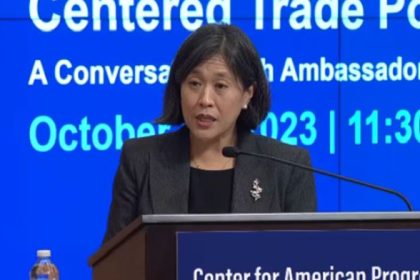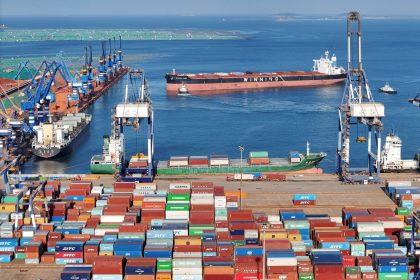Spike In Phony PPEs at Peak of COVID-19 Crisis Shines Spotlight on Issue of Illicit Trade
PARTNER CONTENT
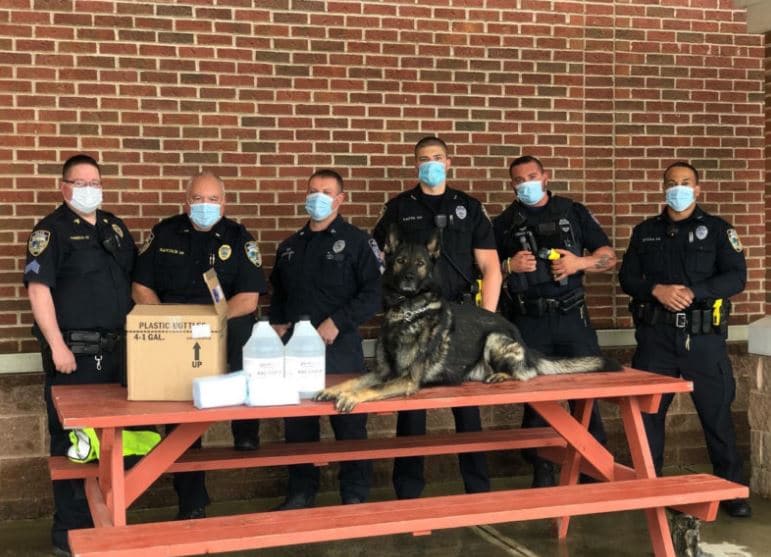
WASHINGTON – It wasn’t unexpected. Counterfeits and knockoffs are all around us, from sneakers to handbags and even cures for the common cold.
But a surge in demand for personal protection equipment, not to mention tobacco, alcohol and cleaning products, at the peak of the coronavirus outbreak, illustrated just how flexible and dangerous the global black market can be.
“There was an opportunity,” said Jeff Hardy, director-general of the Transnational Alliance to Combat Illicit Trade. His organization joined a coalition of companies and organizations, like the U.S. Chamber of Commerce, to raise awareness of how consumers can shop smartly while building on the experience coalition members have in dealing with the economy’s bad actors.
“The pandemic hit and the demand for certain items was such that the supply chain for them just couldn’t keep up,” Hardy said. “That situation, coupled with fear, opened the door to people who saw nothing wrong with putting substandard products on the market.”
The situation was compounded by stay at home orders and the closing of nonessential businesses, which combined to drive even more shoppers than usual away from shopping malls and local merchants and onto the internet.
“The result is that counterfeiting, which people were already exposed to on a regular basis by the internet, was suddenly rampant,” Hardy said.
“Exercise equipment, cleaning agents … we even had one case where an over-the-counter medicine that was on the market years ago — and isn’t even made by the company anymore — suddenly began appearing on websites,” he said.
Hardy’s group responded by issuing a product fraud alert to warn consumers and policy makers about what was unfolding. Since then, it has translated the alert and a subsequent warning into multiple languages and provided them to government offices.
But even Hardy said such warnings could only go so far.
“I mean, you remember how it was. You’d walk into Safeway, and they didn’t have toilet paper, or hand sanitizer or rubber gloves … the things you really wanted to buy at that moment were simply not available,” he said.
“That’s why I say it’s no surprise these rogue third-party suppliers dumped all kinds of things on the market that may or may not have been counterfeit, may or may not have been up to standards, that may or may not have been effective,” Hardy continued. “What we do know is that in most cases, they were not regulated or approved products.”
“And what that suggests is that while a warning is important — and I do believe our warning was effective — the real issue, the question that needs to be answered is, how do we protect the online supply chain from this kind of activity?”
“We talked a lot about that before issuing our product alert, but the reality is, you’re not going to effect the real changes you need during a pandemic,” he said.
Harnessing Competences to Protect the American People
Philip Morris International, a founding member of the coalition, has a long history of combating counterfeits of its own products.
“We saw this as an opportunity to use an area of expertise and apply it to this problem set,” explained Kristin Reif, director of external affairs at PMI, who has a long history of leading company efforts to combat illegal tobacco trade.
“Once we did so we were pleasantly surprised by how many other companies wanted to join,” she said. “Our campaign brought together folks from across product categories as well as from academia and law enforcement, and I think that variety among the members is very important.”
Reif said when the pandemic set in, executives at PMI took a hard look at the company’s core competencies and considered ways it could aid in the global response to the coronavirus.
“We decided to use that to educate policy makers, decision makers, so they could put the right resources in place, and to educate the public so that it was aware there was a problem and that they may not be getting what they are paying for,” Reif continued.
“At the same time, we also went a step further to drive awareness of the general public to official government resources so they could empower themselves,” she said.
Buy Face Masks, You Could Get A Box of Rocks
J.R. Helmig, innovation lead for the Global Security Intelligence Practice at SAS, has a more granular view of the problem than most.
SAS provides software and analytical support to governments, law enforcement, manufacturers and financial institutions about a range of supply chain issues.
Helmig, an engineer by training and profession, said getting one’s arms around the illicit trade in PPEs was “a needle in the haystack kind of problem.”
“I think the thing you have to realize is not only do you have old kinds of fraud taking place at any given time, but you also have new and emerging kinds of fraud,” he said.
“Now, if you think back to February or March, there were a lot of different things going on. There were private citizens competing with hospitals to buy face masks and other items, and there were the first government relief packages being passed,” he said.
“Criminals are opportunistic. So, you had all kinds of fraud going on to take advantage of these things, and some criminals moving from one activity to another. It’s like water,” Helmig explained. “It always goes to the lowest point, right? It’s the same with criminals, they always go toward the opportunity.”
And then, of course, there’s the question of methods.
“For instance, you might have a regular looking shipment coming into the country, but if you put PPE or some other COVID-related designation on it, it’s going to get a lot of attention,” Helmig said. “So maybe instead, you label it ‘men’s shirts’ or ‘women’s shoes,’ products that likely won’t get as much attention.
“It’s all about throwing law enforcement off the scent,” he continued.
“Perhaps, if you’re dealing in counterfeit goods, you send it out in multiple shipping containers so that even if one gets stopped, others might get through. And then there’s the case of someone paying for something and it just never comes,” Helmig said. “You ordered 1,000 face masks and got a box of rocks instead, or a shipment filled with bubble wrap. That’s not counterfeiting, but it is a bait and switch and it’s all part of what we are trying to address by working together.”
Hope on Capitol Hill
Hardy said as dire a picture as he paints, supply chain protections do seem to be of real interest on Capitol Hill at the moment.
He noted that just before the pandemic struck, the White House and U.S. Department of Homeland Security issued a report that highlighted how e-commerce platforms make the U.S. economy more vulnerable, and suggested a dozen improvements that stakeholders — entities like Amazon, eBay and Facebook — could make to address these concerns.
“Right after that report was issued, there was a groundswell of activity on Capitol Hill, with lawmakers on both sides of the aisle introducing bills to address various aspects of the problem, including money laundering, counterfeiting, the use of slave labor, and verification that a seller is a legitimate business,” Hardy said. “Each of these would go a long way toward making shopping platforms and the supply chains that feed them more secure.”
“You know, this isn’t about the consumer being right or wrong — people were rightly concerned and did what they could to protect themselves and their families. And it’s not that the e-commerce platforms are inherently bad,” Hardy said. “It’s about the fact criminals exploit whatever weaknesses they can, so we should do whatever we can to reduce them.”
“One of the things we’ve been trying to communicate to policymakers is that supply chain control really is a paramount concern, especially with something like PPEs, which go to the heart of the health and safety of American citizens,” Reif said.
“The next step is to help people identify legitimate products so they know they are getting what they spend their hard-earned money on, and then, of course, there should be increased consequences for those who are taking advantage of the situation,” she said.
Ironically, Hardy believes the pandemic could help the cause of trying to protect their own product lines from knockoffs and counterfeits.
“Absolutely, it could,” he said. “The situation with counterfeit PPEs has perfectly illustrated the case we’ve been making for years about a whole range of products.”
This article was produced in partnership with and paid for by Philip Morris International.



















